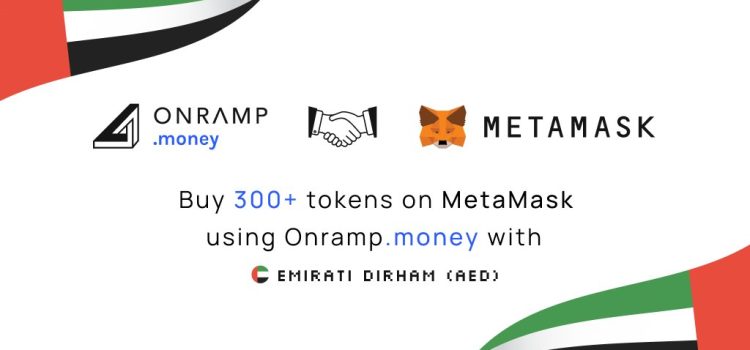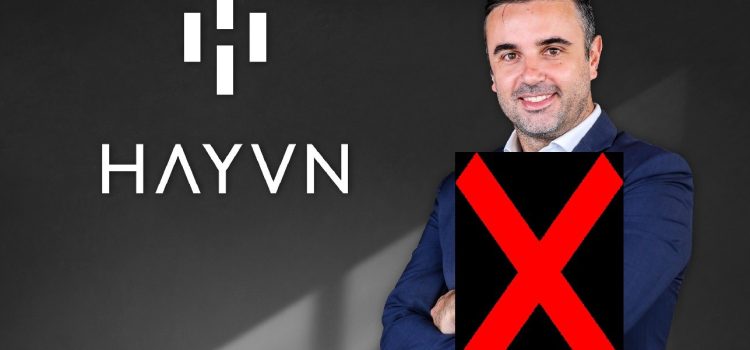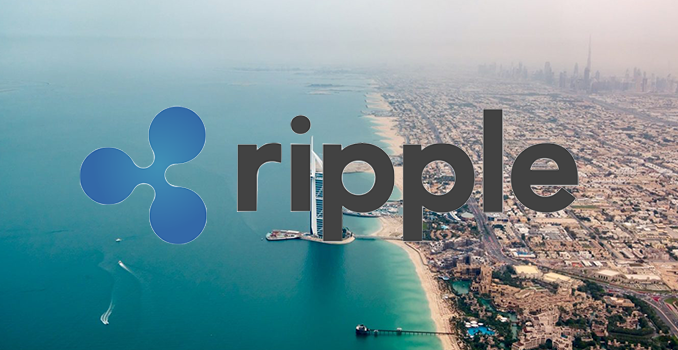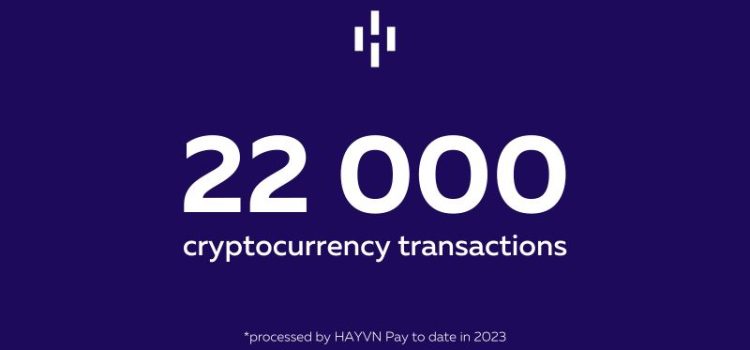UAE based HAYVN which is a digital asset focused financial institution, providing trading, asset Management, custody, and payments previously regulated and active in Abu Dhabi, has fallen under a great wall of scrutiny and a black cloud both with regards of the activities of its previous CEO as well its current status as a regulated entity in the UAE.
In less than a week, Hayvn not only announced the so called resignation of its CEO Christopher Flinos and the request to make its status inactive in Abu Dhabi ADGM ( Abu Dhabi Global Market), but it also insinuated that the CEO had carried out a huge misconduct. In an email statement made by the PR agency of Hayvn, Fully Vested, to UNLOCK Blockchain, the agency noted, “The CEO stepped down from the management of the business, following a request from the Board of Directors due to the CEO’s conduct.”
Sources close to LaraontheBlock have noted that there has been speculation moving around with regards to possible embezzlement. This is further reconfirmed by the fact that Christopher Flinos is nowhere to be found. His phone is off, he does not respond to LinkedIn or other messages, and he himself has not made any statement to clear his name or explain his actions and that of the board of Hayvn.
LaraontheBlock reached out to the FSRA (Financial Services and Regulatory Authority) at ADGM with two questions. The first question, as a regulatory authority what actions have or will be taken towards Hayvn given the current cloud of speculation around it and the activities of its prior CEO?
The second question, can ADGM confirm that institutional clients in the UAE have not been effected financially or otherwise from the actions taken by the prior CEO and Hayvn as a crypto custodian and if effected will there be restitution?
The response which came from FSRA attributed to Mr. Emmanuel Givanakis. CEO of the Financial Services Regulatory Authority at ADGM stated, “As the financial regulator of ADGM, the Financial Services Regulatory Authority (FSRA) is bound by the highest levels of confidentiality and therefore is not positioned to discuss individual firms. The FSRA is committed to supervising all regulated entities so they maintain high standards to address risks related to their activities. ADGM stands as a transparent jurisdiction and has relevant public information on registered and licensed entities by its independent regulatory authorities in ADGM available on the public register.”
As per its license, AC Limited (Hayvn) is not permitted to deal with Retail Clients and is restricted to USD 1 million in total assets (Fiat and Accepted Virtual Assets) for a maximum of 100 clients.
When the same questions were posed to Ahmed W Ismail Co-Founder, Board Member & Operating Committee Member of HAYVN, he replied with this statement, “I can confirm that there has been a change of management at HAYVN. The CEO stepped down from the management of the business, following a request from the Board of Directors. Client funds are safe and there will be no disruption to the service of any clients. We continue to be a globally regulated business through our entities in Australia, Cayman and Lithuania.”
Hayvn was granted a license in ADGM in December 2021, allowing it to offer deals for investments, and virtual asset custody. In October 2023 Hayvn announced that had processed over 22 000 cryptocurrency transactions to date in 2023.
While back in August 2023 Swedish and UAE based Gayo aviation, a luxury travel company that offers aircraft management, consulting services, aircraft purchase and sales and flight deck services announced they were now offering crypto payments utilizing UAE HAYVN Pay.
In May Hayvn also announced that it had recorded returns of 19 percent increase on its crypto index fund since its launch in January 2023. The index fund included the top 20 digital assets by market capitalization with a maximum weighting of 10% for any asset to increase diversification. It is a broad based index strategy with monthly rebalancing.
In short Hayvn was busy partnering and launching products. It partnered with WooCommernce to offer a plug-in allowing merchants to create an additional revenue stream by accepting cryptocurrency payments from customers globally. It also partnered with crypto hardware manufacturer, Ledger to provide safe and robust off-ramping rails to users of Ledger’s Ledger Live service, as well as strategic partnership with Akurateco, a cutting-edge white-label payment software vendor operating worldwide to broaden crypto payments, and finally the most recent partnership with Malta based Apcopay, a Single Layer – Payments Orchestration Platform which they noted was crucial to HAYVN Pay’s global expansion strategy, providing an alternative payment avenue for businesses.
This flurry of activity while to many looks like reflections of growth and expansion could also have been a cover up for activities that led to the current situation Hayvn is in today.
Could the rushed technology upgrade implemented just before Flinos’s resignation which created widespread disruptions for Hayvn Pay Clients been part and one of the issues realted to the misconduct of the CEO?
These questions and many more should become clearer as the Abu Dhabi Global Market regulator investigates, and as Hayvn’s new leadership takes form.


















